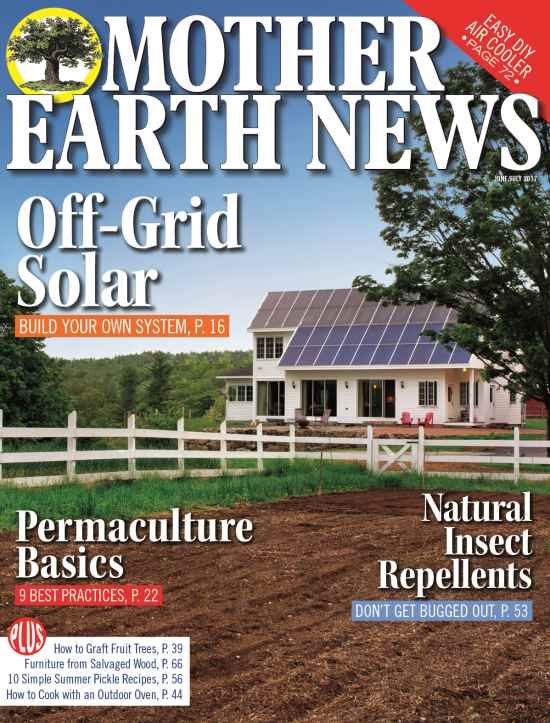We humans are a diverse lot and when it comes to beef, we definitely want it our way. But where does all that focused food come from? Thanks to the fact that more than 70 breeds of cattle have been introduced to the United States through the years, many of today’s beef producers are putting that genetic diversity to good use to provide one of the safest and healthiest forms of protein exactly the way you want it.
Finding a niche in the cattle business means serving a unique group of consumers. Niche market producers differentiate themselves by fulfilling a particular need that’s usually overlooked by the mainstream. A niche must offer a difference people are willing to pay for. These days in the beef industry, most value-added differences include words like lean, natural, organic, healthy or environmentally friendly.
Keep It Lean
Let’s start with lean beef. Due to health concerns, many consumers prefer reduced-fat meat. Sellers using the term lean on their labels must verify fat content through laboratory tests. One lean beef production and marketing program is Laura’s Lean Beef ( www.LaurasLeanBeef.com ). Started in 1985 by Laura Freeman, Laura’s Lean is an all-natural, branded beef company dedicated to supporting family farms. Laura’s suppliers produce lean beef from lean, heavily muscled cattle raised on natural feeds without added growth hormones or antibiotics.
Laura’s Lean has relationships with the American breed associations for several imported continental European breeds, such as Limousin and Charolais (from France), Simmental (Switzerland, France and Germany), and Gelbvieh (Germany). The Piedmontese (Italy) and Belgian Blue (Belgium) breeds, both famous for their “double muscling,” are also obvious choices for the Laura’s Lean program.

The Piedmontese is ‘double-muscled’ due to a gene that suppresses the production of myostatin, a protein that normally inhibits muscle growth. Courtesy North American Piedmontese Assoc.
Greener Beef
Some consumers are more concerned with how their beef is classified regardless of fat content. Certifications such as all-natural and organic are gaining market share. In the case of all-natural, the product’s label must explain the use of the term natural, and production methods must be documented through a protocol approved by the U.S. Department of Agriculture. Coleman Natural Meats ( www.ColemanNatural.com ) is the nation’s largest producer of certified all-natural beef. They contract with hundreds of ranchers throughout the West to produce beef without hormones or antibiotics.
Producers must also ensure that their cattle live in a clean, comfortable, stress-reduced environment and eat balanced, vegetarian diets, and they must employ practices that protect water, air, land and wildlife. All British breeds of cattle such as Angus, Hereford and Shorthorn are eligible for the program, as are others including Continental beef breeds. Coleman’s products grade high choice, and are tender and flavorful.
Fat and Flavorful
Another interesting niche beef market is at the other end of the spectrum for fat content. Kobe beef, a legendary delicacy in Japan, is so well marbled the meat looks like it has been left out in the snow. Kobe-style beef comes from the meat of Wagyu cattle. Wagyu (wameaning “Japanese” and gyu meaning “cattle”) were derived from native Asian cattle crossed with British and European breeds in the late 1800s. Wagyu is a horned breed and is typically black or red (black animals are perceived to be higher quality).
Wagyu are renowned for their calving ease, docile temperament, early puberty and fertility. They are hardy and adaptive to different environments. The high fat content in this breed is genetic and not an artifact of feeding. Wagyu cuts appeal to a consumer more conscious of tenderness and taste. Some cuts are reported to retail for between $40 and $150 per pound in the United States. Kobe beef is a small specialized niche that should only be considered after careful research.
The fact that folks want their beef served up in a broad variety of ways provides untold opportunities for producers. Some people want absolutely no fat in their beef, while others want the highest levels of fat possible. Still other consumers are looking for harvest procedures that vary; some want grass fed only; some are after hides and horns rather than meat; while others would like strictly acreage pets. Entrepreneurs with an adventurous side can explore these various niche markets while assuring consumers that beef is safe and healthy.
Professional cattleman Jack Nemec lives with his wife, Nancy, in Quincy, Illinois, and puts his 40 years experience in the industry to good use judging shows, writing for breed associations and supporting his children whenever he gets the chance.










